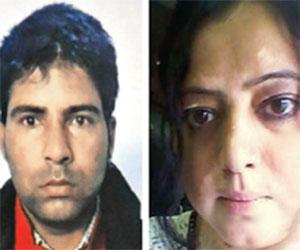Bengaluru, Jan 21: Two days after a 31-year-old woman employee of IBM was found murdered in her apartment in Bangalore, the police arrested the suspected killer near Gurgaon. Kusuma Rani Singla was transferred to the Karnataka capital six months ago from Noida.
 Police sources said Singla, a divorcee hailing from Punjab, had befriended the suspected killer, identified as Sukhbir Singh, on Facebook few weeks ago.
Police sources said Singla, a divorcee hailing from Punjab, had befriended the suspected killer, identified as Sukhbir Singh, on Facebook few weeks ago.
According to Additional Commissioner (Bengaluru-East) P Harishekaran, Singh, during his meeting with Singla, apparently demanded Rs 50,000 and a flight ticket from her which she denied. He then used a laptop charge cord to strangle her.
Angered by this, he strangulated her to death using a laptop charger cord. A pen was also used in the crime, and an about two-inch deep wound is seen on her right eyebrow, he said. "On January 19, Singh flew into Bangalore from Delhi and went to Singla's house by 12.15pm. He was there till 3.30 pm," Harishekaran said.
An altercation erupted between the two that led to the murder of Singla, he said. Singh collected Singla's ATM cards and chequebooks and even withdrew Rs 11,000 using one of the cards before leaving to Delhi via Mumbai.
He hails from Haryana and has worked as a software engineer with MNCs but is currently unemployed, he said. He said the motive of the murder was yet to be ascertained.




Comments
Crazy Man. He should be under the bar for 20 years. Then only knows the value of once life.
Add new comment